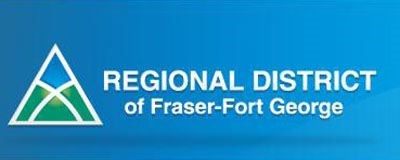The regional district may be getting new tools to crack down on problem properties.
During Thursday afternoon's board meeting, Tabor Lake-Stone Creek director Bill Empy introduced a successful motion to have the Regional District of Fraser-Fort George's unsightly premises bylaw reviewed.
It's been almost a quarter of a century since the bylaw was last updated in 1991, said district chief administrator Jim Martin.
"There have been changes to the Local Government Act and our bylaw needs to be updated in order to reflect some of that," Martin said.
A challenge for the regional district is its sheer size and finding a way to consistently apply a bylaw across the entire rural area.
The local government oversees 52,000 square kilometres and "different communities have different standards and expectations of what 'unsightly' means to them," said Martin.
But one of the biggest issues for the regional district in enforcing its existing bylaw is the fact that it is complaint-driven only.
In a July interview with The Citizen, the regional district's bylaw enforcement officer – yes, singular – Anita de Dreu said when complaints come in, she works with the property owner to bring them into compliance and that it's very seldom that they have to enforce a clean-up order.
However, just because a complaint was made doesn't mean that the look of the subject property will be changed quickly – or at all.
In the past, the board has allowed up to four non-roadworthy vehicles on a property, de Dreu said.
"There's a process. People think 'OK, so we call in and next week it will be cleaned up.' We have to give the property owners absolutely every opportunity to make it right before we actually step in and do it for them," de Dreu said. There are some cases where she's been working with property owners for several years.
Part of the review will involve ensuring the board of directors is aware of what the full implications are of being more proactive.
Allowing bylaw enforcement to become more proactive could lead to more clean ups, but it could also lead to a bigger bill.
As Martin and de Dreu said, if the regional district has to take over, that's also a costly practice.
If a local government has to step in and conduct a clean up on a property, the cost is added to the owner's property tax bill. In Prince George, that money will make its way back to the city eventually.
"Unlike municipalities, on the cost recovery piece, if we're out there being active in doing property clean ups ourselves as a local government because there is non-compliance in place and the property owner does not want to be compliant it is much harder for us to recover funds because we don't have the ability to take over land and do tax sales," Martin said.



